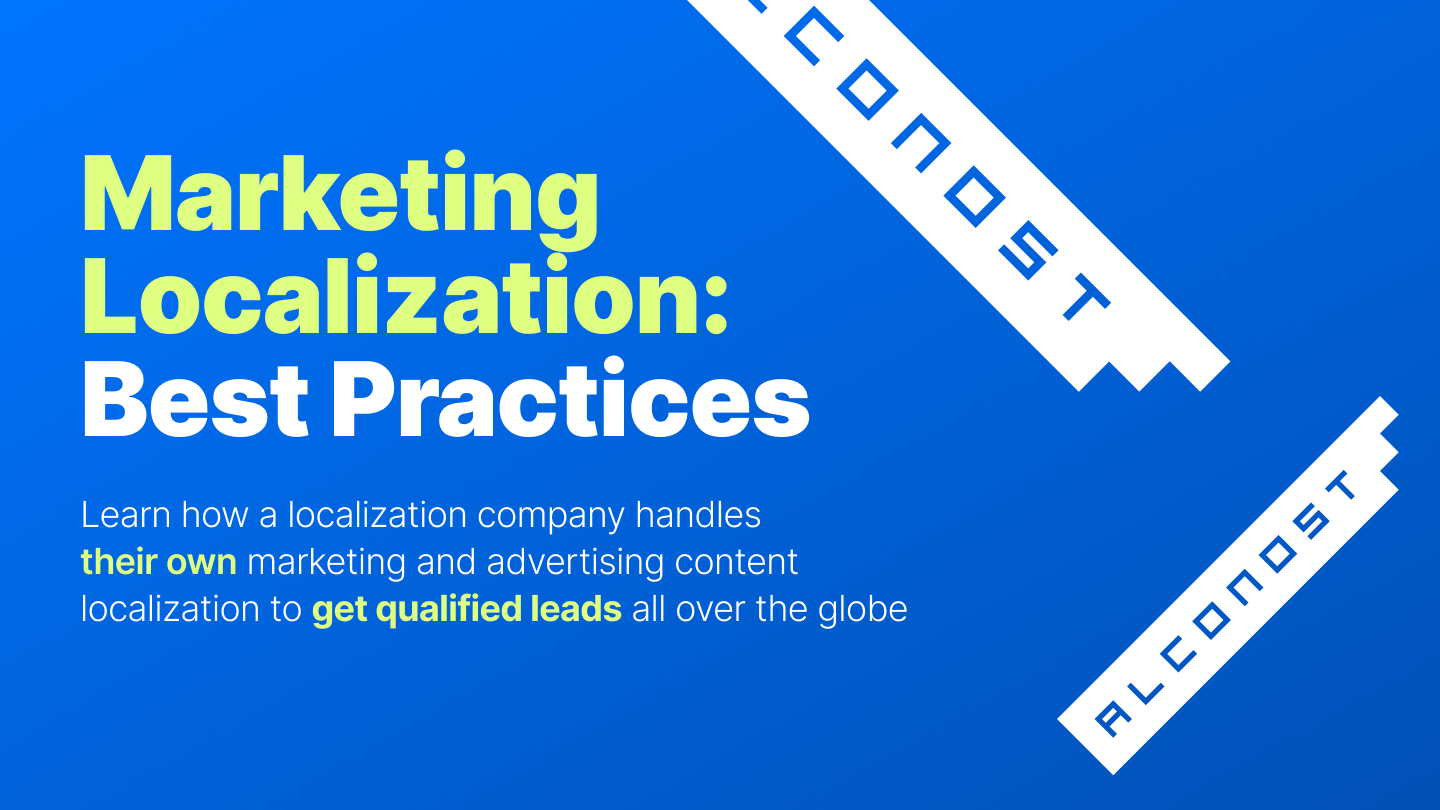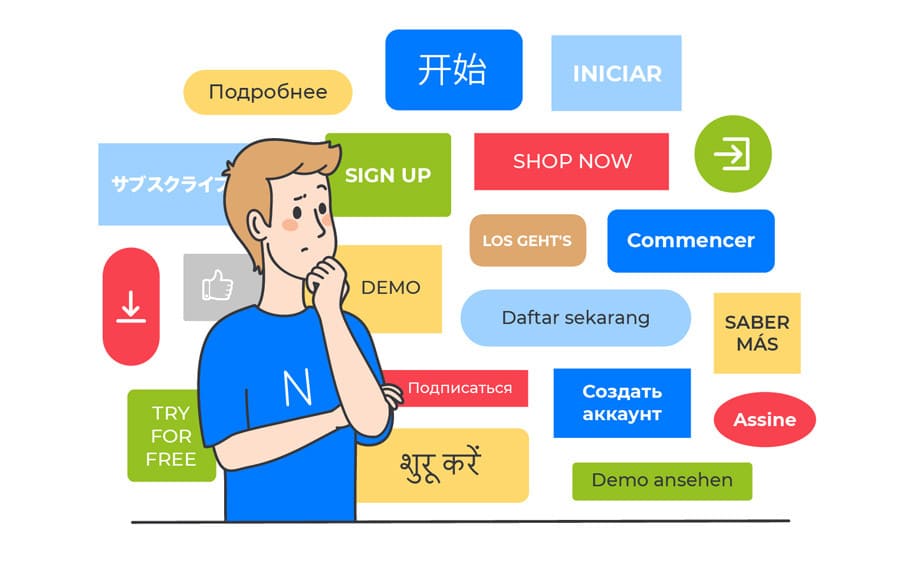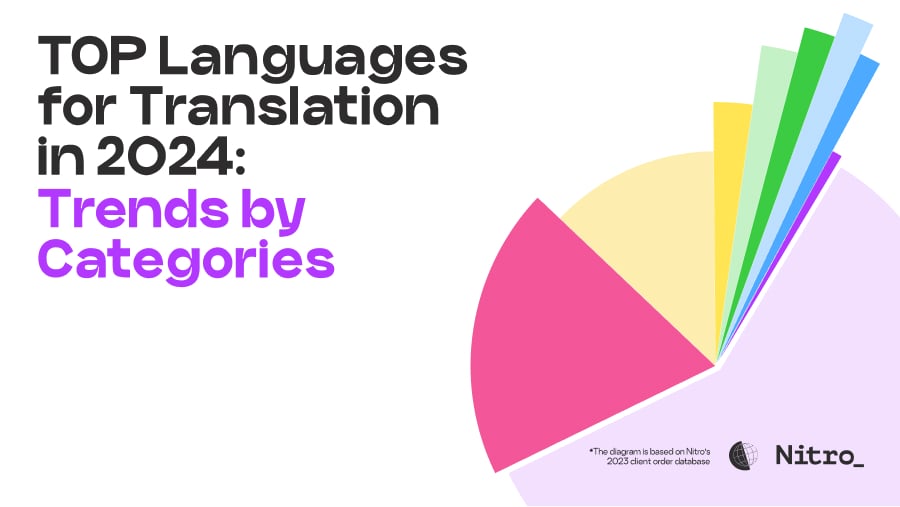We appreciate you reading our blog for executive teams, marketing, product, localization, and localization teams that actively support international business expansion. We share knowledge gained about localization, globalization, and culturalization to assist you in creating informed global growth strategies. Likewise, we do this by drawing on our two decades of experience running a worldwide localization company. Stay with us! 🌎
During our 19 years in the localization business, we have witnessed several clients build strong digital brands in markets outside their own. These 8 characteristics set them apart.
1. They provide convenient payment solutions to customers who are from abroad.
A payment transaction is the marketing funnel's final destination. Offering potential customers a comfortable shopping experience is important. Global brands either establish partnerships with local payment providers or implement internationally recognized and trusted gateways to enable transactions across borders.
Price localization is another checkpoint. While some businesses automate currency display using geotechnologies based on IP addresses, others, like Netflix, go one step further and modify pricing in each target region according to factors like purchasing power, locally perceived value, and market saturation.

2. They provide overseas clients with the support they need to use the product without any problems.
Global digital brands go above and beyond to offer a thorough support infrastructure. For example, they may deploy chatbots or AI-powered self-service assistants that operate in multiple languages, hire customer support agents who work in the target market's time zone, or create a multilingual knowledge base with FAQs, how-to guides, and other support resources. In other words, they guarantee that users from different locations can use their service without facing language barriers, whether through intelligent automation or direct human involvement.
3. They are aware of and abide by the rules and regulations.
They make sure that their digital products abide by privacy, data protection, and other laws. This argument is especially important for SaaS solutions that use artificial intelligence (AI), big data, and the internet of things (IoT) as these technologies are still not thoroughly regulated in many jurisdictions.

4. They proactively get ready to expand globally with their digital infrastructure.
It's critical to provide a basis for digital products that can support their expansion. This entails putting in place a codebase and architecture that are scalable and responsive to changing needs. A digital product experiences variable user traffic as it becomes more popular in different parts of the world. The underlying infrastructure should be structured as a distributed system that allows for horizontal scaling—adding additional components as needed—so that servers can manage this dynamic load efficiently.
Another crucial consideration that multinational corporations typically make when getting a digital product ready for international distribution is code support for internationalization (i18n). It is simpler to handle various languages when the user interface (UI) and language-dependent components are kept apart from the main program logic through internationalization. Organizations can integrate their translations throughout the global product lifecycle when the codebase is adaptable enough to accommodate different character sets, dates, times, and number formats.

5. They customize their marketing if they sell to a variety of cultural audiences.
Even though a product's primary value proposition normally doesn't change, there are situations where minor cultural tweaks are necessary. This could include changing wordplay and comedy to fit a particular language, or changing character portrayal to fit the local cultural setting.
In our post on how to keep it funny when going global, we examine the complexities of translating comedy. Among other examples, we used this popular Western joke to demonstrate its complexity:

Source: Humor in games: keeping it funny when going global by Alconost for Gamesindustry.biz
It is not always possible to translate text word for word. A new audience may not respond to some messages as intended because of the different political, economic, historical, and socio-cultural factors that influence their day-to-day existence. Global brands are committed to establishing a connection with their customers that respects their original language and cultural background. They can demonstrate this commitment through an active use of transcreation, localization, and any other marketing adaptation tactics that go beyond the one-size-fits-all approach.
6. They adopt a corporate culture that is inclusive.
Another characteristic shared by digital businesses that have been successful in going global is their inclusive cultures. These businesses respect diversity and foster an inclusive workplace that welcomes staff members and visitors from many ethnicities, nations, and backgrounds.
One excellent illustration is Wildlife Studios, one of our clients and one of the top 10 mobile game companies in the world. They have made a significant impact in the global gaming market, with offices in the US, Brazil, Argentina, and Ireland. One thing became evident during our conversation with Wildlife Studios regarding their localization strategy: their dedication to diversity, equity, and inclusion influences many of their business decisions, regardless of whether they aim to attract an inclusive international player base, cultivate an inclusive environment within their international team, or do both.
Elaine the Black Panther, a character in Zooba that draws inspiration from a Black community member, is a great example of how WLS integrates diversity into their game creation process. The WLS team that developed the character worked closely with the Black community within the organization to guarantee the highest level of cultural sensitivity, including them in all stages of the character's development. The result is Elaine, a beloved character throughout the world who genuinely speaks to and represents Black people. We encourage you to read the blog article that was sparked by our discussion with Suellen Mendes, Lead Project Coordinator at Wildlife Studios, to learn more about the localization approach used by the company.

Global businesses that value diversity, equity, and inclusion can support this culture in many ways: by hiring and developing international teams; by offering cross-cultural training courses and language-specific resources; by putting in place anti-discrimination policies; and by offering flexible work schedules that take into account various cultural customs and holidays.
Global companies that embrace inclusion, equity, and diversity can promote this culture in a number of ways, including:
- Assemble and establish multinational teams
- Offer training programs that bridge cultural gaps and resources for language-specific assistance.
- Create anti-discrimination guidelines
- Provide flexible work arrangements to accommodate various cultural customs and holidays.
- Employ additional tactics to establish a welcoming and encouraging workplace where staff members from various backgrounds can contribute to the organization's global goal and exchange viewpoints.
7. They see international expansion as an opportunity.
Thanks to this mentality, they actively seek out and profit from new markets.
These businesses form teams in charge of planning and carrying out growth projects. For instance, they have localization managers who work with outside vendors and translators. In addition to localization, they have departments handling strategic planning, market research, and daily global strategy implementation. These groups actively search for untapped markets, keep an eye on emerging trends, and adjust their tactics to expand into new areas.
When working with vendors, they seek strategic business partnerships rather than one-time transactional service delivery. This brings us to the last and eighth distinguishing characteristic of a powerful global corporation.
8. They form long-term commercial alliances to outsource specialized responsibilities.
Through the external suppliers' resources and experience, businesses can obtain specific talents and technology that may be absent from their own departments. Through these collaborations, businesses can shift their attention from depending entirely on internal resources to their core capabilities. Strategic outsourcing increases their agility and scalability, giving them a competitive edge in crowded marketplaces.
- Rather than developing a whole software engineering department in-house, startups and enterprises that want to develop a scalable digital product from conception to execution can choose to collaborate with firms that specialize in full-cycle product development.
- When entering new markets, companies may collaborate with regional agencies or consultants that specialize in market entrance to learn about the customs and regulations of the target market, as well as to help customize the product to meet local demand.
- Organizations cooperate with translation and localization agencies to first adapt the product for new markets. These agencies offer a team of native-speaking translators with relevant industry experience and assist in integrating continuous localization into the production workflow.
Here are some questions to ask during the discovery process to determine whether the organization's present demands for external expansion may be met by a collaboration with a localization vendor:
- Which platform do they use for translation management? How adaptable is their arsenal?
- How is the localization process included in the current business ecosystem of another company?
- How can they guarantee continuous localization for projects that need to be updated frequently?
Naturally, positive social proof is another component that raises the chances of this collaboration succeeding in the long run. How good is a vendor's track record? In order to establish their reputation and provide specific examples of their work with firms, most localization suppliers display their portfolios on their websites, along with information about the industries and kinds of businesses they have worked with. There are also specialist, unbiased review sites like TrustPilot, G2, and Clutch, among others. Customers rate and review products on these platforms, providing a dispassionate assessment of their degree of satisfaction. Moreover, websites such as Clutch frequently publish rankings of top performing companies in particular categories—translation services included. They are also an excellent resource for learning about the performance of vendors in their sector.
When in doubt, a little test translation order allows you to assess if a vendor is a good fit for your digital solution's present and future requirements by providing a sneak peek into their process, tools, and customer service style without requiring a large commitment.
Final Thoughts
While not the only stage in expanding a company's global operations, translation is frequently the first one. Additionally, it is the quickest way for digital products to go on sale, get feedback, and go through additional iterations.
Digital products that are now available everywhere and serve a diverse user base were frequently initially translated into a set of minimally viable versions. This method, which divides translation work into manageable sprints centered on certain materials or features, is ideally suited to the idea of continuous localization. It enables fast startup, frequent status reports, testing, and improvement.
At Alconost, we recognize how important continuous localization is to your company's worldwide growth. With over two decades of experience, we guarantee quick and smooth localization sprints, so your product can quickly and easily reach global audiences.
Let's collaborate to launch your digital product on a global scale. Get in touch with us to talk about your translation requirements and begin the exciting multilingual adventure of your product.








